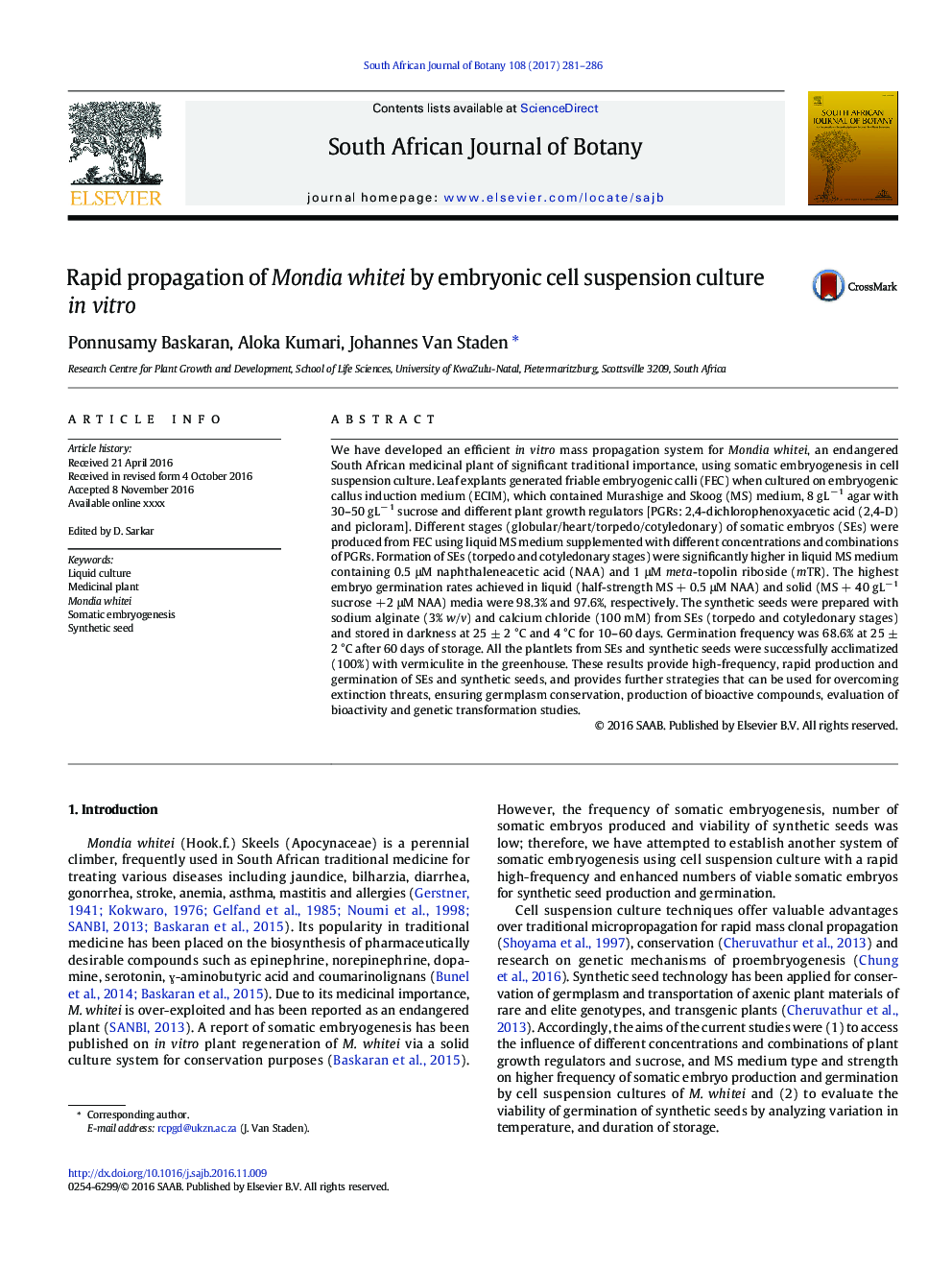| Article ID | Journal | Published Year | Pages | File Type |
|---|---|---|---|---|
| 8882470 | South African Journal of Botany | 2017 | 6 Pages |
Abstract
We have developed an efficient in vitro mass propagation system for Mondia whitei, an endangered South African medicinal plant of significant traditional importance, using somatic embryogenesis in cell suspension culture. Leaf explants generated friable embryogenic calli (FEC) when cultured on embryogenic callus induction medium (ECIM), which contained Murashige and Skoog (MS) medium, 8 gLâ 1 agar with 30-50 gLâ 1 sucrose and different plant growth regulators [PGRs: 2,4-dichlorophenoxyacetic acid (2,4-D) and picloram]. Different stages (globular/heart/torpedo/cotyledonary) of somatic embryos (SEs) were produced from FEC using liquid MS medium supplemented with different concentrations and combinations of PGRs. Formation of SEs (torpedo and cotyledonary stages) were significantly higher in liquid MS medium containing 0.5 μM naphthaleneacetic acid (NAA) and 1 μM meta-topolin riboside (mTR). The highest embryo germination rates achieved in liquid (half-strength MS + 0.5 μM NAA) and solid (MS + 40 gLâ 1 sucrose + 2 μM NAA) media were 98.3% and 97.6%, respectively. The synthetic seeds were prepared with sodium alginate (3% w/v) and calcium chloride (100 mM) from SEs (torpedo and cotyledonary stages) and stored in darkness at 25 ± 2 °C and 4 °C for 10-60 days. Germination frequency was 68.6% at 25 ± 2 °C after 60 days of storage. All the plantlets from SEs and synthetic seeds were successfully acclimatized (100%) with vermiculite in the greenhouse. These results provide high-frequency, rapid production and germination of SEs and synthetic seeds, and provides further strategies that can be used for overcoming extinction threats, ensuring germplasm conservation, production of bioactive compounds, evaluation of bioactivity and genetic transformation studies.
Related Topics
Life Sciences
Agricultural and Biological Sciences
Agronomy and Crop Science
Authors
Ponnusamy Baskaran, Aloka Kumari, Johannes Van Staden,
